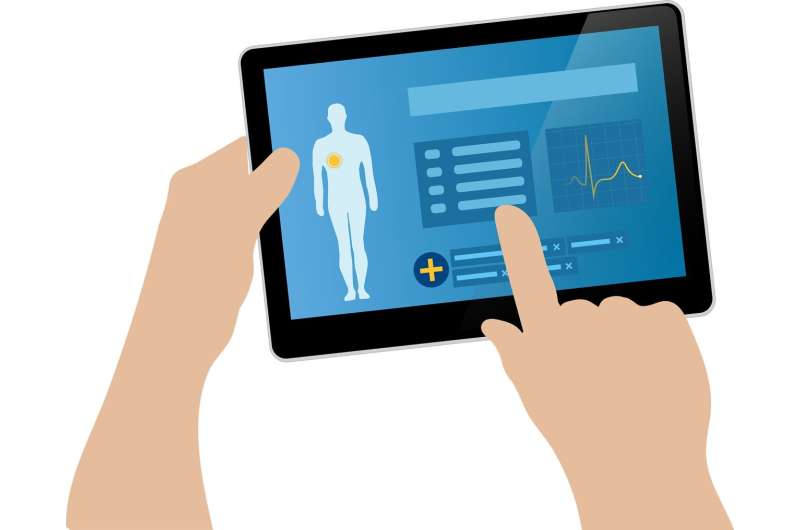This article has been reviewed according to Science X's editorial process and policies. Editors have highlighted the following attributes while ensuring the content's credibility:
fact-checked
trusted source
proofread
Cancer tool 'unable to accurately predict' toxicity levels in older UK patients

Experts from the University's School of Medicine have revealed that the Cancer Aging Research Group (CARG) score—a tool used to estimate the risk of severe chemotherapy-related side effects for patients—is not robust when used in an older U.K. population.
The Dundee team, along with colleagues from Leeds Teaching Hospitals NHS Trust and across the U.K., found that the CARG score was unable to reliably predict toxicity in patients aged over 65 who were receiving chemotherapy for the first time.
The team were also able to identify widespread frailty among patients, which is important given the current lack of routine frailty assessment in the U.K.'s cancer population. The findings have been published in the journal BMJ Oncology.
The CARG score was developed to help predict severe chemotherapy-induced toxicity risk in older adults. The score utilizes several performance markers from a patient, such as hearing and physical capabilities, in conjunction with personal data such as weight, height and cancer type to estimate the risk of severe chemotherapy-related side effects.
While recommended for use by international organizations, including the American Society of Clinical Oncology (ASCO), the CARG score had not previously been assessed prospectively in a U.K. population.
In addition, it has been established for some time that older adults and those with co-existing frailty are more vulnerable to chemotherapy toxicity. However, it was not previously known how common frailty was in older adults receiving chemotherapy in the U.K.
The Tolerance Of Anti-Cancer Systemic Therapy In the Elderly (TOASTIE) study recruited 339 U.K. patients, all with a minimum age of 65 years-old. Just over half had been diagnosed with gastrointestinal tumors, while others living with gynecological, urological, lung and breast cancers were also included.
Analysis of the TOASTIE study data identified a high prevalence of frailty and also revealed that the CARG score was unable to predict the risk of high-grade toxicity, with the research team concluding that it cannot be considered a robust toxicity prediction tool in an older U.K. population. In contrast, frailty screening tools such as the Rockwood Clinical Frailty Scale, which measures frailty based on clinical judgment, had predictive value.
Dr. Mark Baxter, from Dundee's School of Medicine, said, "We are seeing an increasing older cancer population throughout the world, however, the availability of data relating to older adults with cancer is limited.
"This is the first multicenter study in the U.K. to prospectively report the demographics and pre-existing frailty of a real-world cohort of patients across a range of solid organ tumors receiving chemotherapy.
"Analysis of our data found that pre-existing frailty is common and the CARG score was unable to accurately predict toxicity levels in patients.
"The ultimate goal is to provide personalized care for each individual patient we see in clinic. By identifying and assessing frailty in more detail, we can better predict who is more likely to experience side effects. As such, we can have more informed discussions around management decisions.
"There is also now good evidence that targeted interventions based on the findings of the frailty assessment results in better patient outcomes.
"There is a need to develop geriatric oncology services within Scotland and the U.K. We also need to carry out more research that would allow us to develop a better standard of predictive tools, which would ultimately improve patient outcomes."
More information: Mark A Baxter et al, UK national observational cohort study investigating Tolerance of Anti-cancer Systemic Therapy in the Elderly: the TOASTIE study, BMJ Oncology (2024). DOI: 10.1136/bmjonc-2024-000459
















